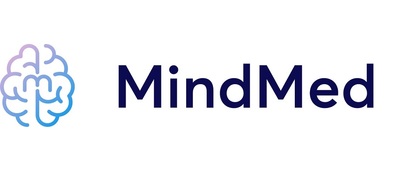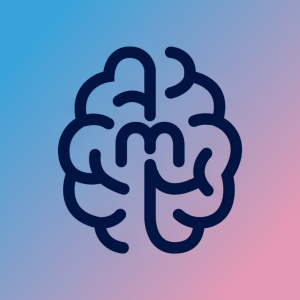MindMed and Liechti Lab publish first human data on the interacting effects of an SSRI and psilocybin
Mind Medicine (MindMed) Inc. (NASDAQ: MNMD) announced the publication of a study on the interaction between the SSRI escitalopram and psilocybin effects in healthy volunteers. Conducted by the University Hospital Basel, the study revealed that escitalopram did not significantly affect the positive mood effects of psilocybin but reduced negative outcomes like anxiety. The findings suggest that psilocybin can be administered without stopping escitalopram, paving the way for future research in clinical settings.
- Results indicate psilocybin can be dosed during escitalopram treatment without impacting its effects.
- Study highlights potential for further research in combining antidepressants with psychedelics.
- Study conducted on healthy volunteers, limiting immediate applicability to patients.
- Risks and uncertainties remain regarding future studies and their outcomes.
Insights
Analyzing...
NEW YORK, Nov. 30, 2021 /PRNewswire/ -- Mind Medicine (MindMed) Inc. (NASDAQ: MNMD), (NEO: MMED), (DE: MMQ); (the "Company"), a leading biotech company developing psychedelic-inspired therapies, is pleased to announce the publication of the first data on the interaction of the selective serotonin uptake inhibitor (SSRI) escitalopram with the acute response to psilocybin in humans. The publication resulted from a randomized, double-blind, placebo-controlled, crossover pharmacology study in healthy volunteers conducted by the University Hospital Basel Liechti Lab and sponsored by MindMed.
The study found that escitalopram pre-treatment had no relevant impact on positive mood effects of psilocybin but significantly reduced negative effects like anxiety and adverse cardiovascular reactions, compared with placebo pre-treatment in the study's healthy volunteers. Escitalopram did not alter the pharmacokinetics of psilocin. Escitalopram did not alter QTc intervals or circulating BDNF levels before or after psilocybin administration. The study was published in Clinical Pharmacology and Therapeutics. The full-text can be accessed here: https://ascpt.onlinelibrary.wiley.com/doi/10.1002/cpt.2487
"Two key questions arise around the use of psilocybin in patients undergoing antidepressant treatment," said Prof. Matthias Liechti, the principal investigator of the study. "First, for safety reasons, should a patient stop using antidepressants before receiving psilocybin? Second, if there is no safety risk, will the antidepressant reduce the patient's response to psilocybin? These results indicate that psilocybin may be dosed during escitalopram treatment without apparent impact on the effect of psilocybin. Thus, the study answers the first question and provides a positive indication for the second."
The study results highlight important areas for future research. Dr. Miri Halperin Wernli, Executive President of MindMed, added: "If the results are confirmed in subsequent studies, with other substances and in patients rather than healthy individuals, antidepressants may no longer need to be stopped for psilocybin treatment. Further studies are needed with a longer antidepressant pre-treatment time and patients with psychiatric disorders to further define interactions between antidepressants and psilocybin or other psychedelics."
Forward-Looking Statements
Certain statements in this news release related to the Company constitute "forward-looking information" within the meaning of applicable securities laws and are prospective in nature. Forward-looking information is not based on historical facts, but rather on current expectations and projections about future events and are therefore subject to risks and uncertainties which could cause actual results to differ materially from the future results expressed or implied by the forward-looking statements. These statements generally can be identified by the use of forward-looking words such as "will", "may", "should", "could", "intend", "estimate", "plan", "anticipate", "expect", "believe", "potential" or "continue", or the negative thereof or similar variations. Forward-looking information in this news release include, but are not limited to, statements regarding the safety, effects and benefits of escitalopram pre-treatment and the acute response to psilocybin in humans, the results for future studies and the need for antidepressants to be stopped for psilocybin treatment. Although the Company believes that the expectations reflected in such forward-looking information are reasonable, such information involves risks and uncertainties, and undue reliance should not be placed on such information, as unknown or unpredictable factors could have material adverse effects on future results, performance or achievements of the Company. There are numerous risks and uncertainties that could cause actual results and the Company's plans and objectives to differ materially from those expressed in the forward-looking information, including history of negative cash flows; limited operating history; incurrence of future losses; availability of additional capital; lack of product revenue; compliance with laws and regulations; difficulty associated with research and development; risks associated with clinical trials or studies; heightened regulatory scrutiny; early stage product development; clinical trial risks; regulatory approval processes; novelty of the psychedelic inspired medicines industry; as well as those risk factors discussed or referred to herein and the risks described under the headings "Risk Factors" in the Company's filings with the securities regulatory authorities in all provinces and territories of Canada which are available under the Company's profile on SEDAR at www.sedar.com and with the U.S. Securities and Exchange Commission on EDGAR at www.sec.gov. Should one or more of these risks or uncertainties materialize, or should assumptions underlying the forward-looking information prove incorrect, actual results and future events could differ materially from those anticipated in such information. Although the Company has attempted to identify important risks, uncertainties and factors that could cause actual results to differ materially, there may be others that cause results not to be as anticipated, estimated or intended. These and all subsequent written and oral forward-looking information are based on estimates and opinions of management on the dates they are made and are expressly qualified in their entirety by this notice. Except as required by law, the Company does not intend and does not assume any obligation to update this forward-looking information.
Media Contact: mindmed@150bond.com
![]() View original content to download multimedia:https://www.prnewswire.com/news-releases/mindmed-and-liechti-lab-publish-first-human-data-on-the-interacting-effects-of-an-ssri-and-psilocybin-301433726.html
View original content to download multimedia:https://www.prnewswire.com/news-releases/mindmed-and-liechti-lab-publish-first-human-data-on-the-interacting-effects-of-an-ssri-and-psilocybin-301433726.html
SOURCE Mind Medicine (MindMed) Inc.








